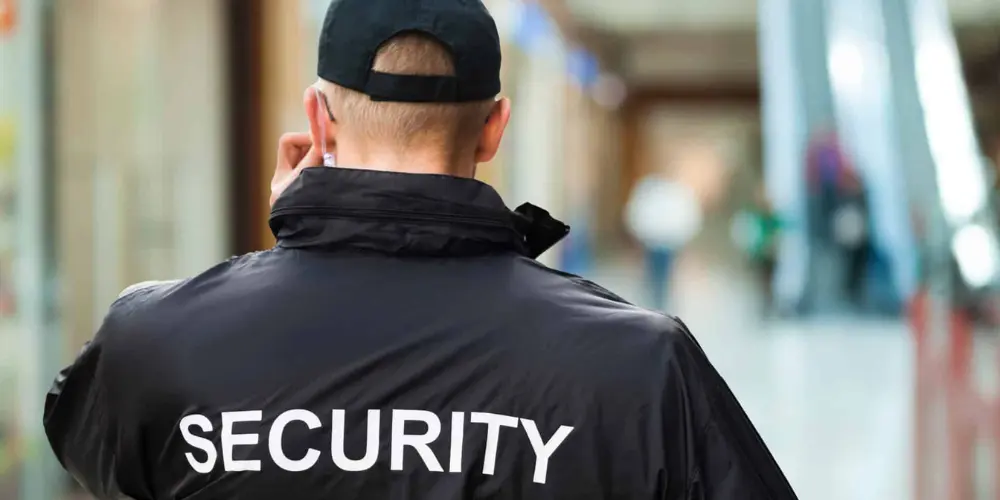Can Security Guards Wear Body Cameras?
Security concerns have become more complex and demanding in an increasingly digitised world. The role of security guards in maintaining safety and order has never been more crucial. As we navigate a landscape marked by technological advancements and a growing demand for accountability, the question arises: can security guards wear security body cameras?
This intriguing concept delves into the intersection of modern technology and security practices, raising meaningful discussions about privacy, transparency, and the overall effectiveness of security operations. One technological advancement that has gained prominence in recent years is using body cameras by security personnel. This innovation raises pertinent questions about privacy, accountability, and the overall efficacy of security operations. The purpose of body-worn cameras is to have privacy and transparency in security operations.
What is A Body Camera?
A body camera, also known as a body-worn camera or BWC is a compact and wearable recording device designed to be attached to the clothing or equipment of an individual. Typically used by law enforcement officers, security personnel, and other professionals in various fields, a body camera captures audio and video footage from the wearer’s perspective. This device provides an on-the-ground, real-time visual and auditory record of interactions, events, and situations unfolding, offering an objective and often unfiltered view of the wearer’s surroundings. The recorded footage can then be used for various purposes, including documentation, evidence collection, accountability, training, and analysis of incidents.
Body Cameras For Security Guards
The advantages of hidden body cameras for law enforcement personnel have been extensively recorded. These crucial technological tools offer an unbiased account of incidents as they unfold, resulting in officers who utilise these cameras being shown to make more arrests and face fewer complaints than those who don’t. Nonetheless, businesses also recognize their significance in the corporate sector. Body cameras have the potential to defuse conflicts between staff members and the public, all the while recording valuable video evidence should the situation escalate unexpectedly.
1. Enhanced Accountability
One of the primary arguments favouring the purpose of body-worn cameras is the enhanced accountability they provide. Body cameras can deter security personnel from engaging in inappropriate behaviour or using excessive force, as they know their actions are being recorded.
Moreover, in cases where there are allegations of misconduct, body camera footage can serve as an unbiased record of events, helping to establish the truth.
2. Transparency And Trust
Security Body cameras can foster a sense of transparency and trust between security personnel and the public they serve. When individuals know their interactions with security guards are being recorded, they may feel more secure and confident. This transparency can help defuse potential conflicts and be valuable evidence in disputes.
3. Training And Improvement
Hidden Body camera footage can be invaluable for training and improvement within security teams. Supervisors can identify strengths and weaknesses in their personnel’s performance by reviewing recorded interactions. This insight can guide targeted training programs, leading to better-equipped security guards who can handle various situations excellently and effectively.
4. Evidence Collection
Security guards are often the first responders to incidents on the premises they protect. Body cameras can capture crucial evidence vital for law enforcement and legal proceedings. This can be especially important in theft, assault, or vandalism, where the body camera footage can clearly explain what transpired.
5. Night Vision Features
Night vision features in hidden body cameras have significantly revolutionised their functionality, enabling effective recording and surveillance even in low-light or complete darkness scenarios. These specialised cameras employ advanced technology to capture clear, detailed footage in conditions where traditional cameras might struggle to provide adequate visibility.
Night vision capabilities allow body cameras to maintain effectiveness during nighttime patrols or in dimly lit areas, ensuring that critical incidents are captured clearly without missing details.
Challenges And Considerations
While the benefits of security guards wearing security body cameras are evident, some challenges and considerations need to be addressed:
1. Privacy Concerns
Using body cameras raises questions about the privacy of security personnel and the public they interact with. Balancing the need for security and accountability with the right to privacy is a delicate matter that requires careful policy development.
2. Data Storage And Management
Many video data from multiple hidden body cameras need efficient storage and management systems. Ensuring the security of this data to prevent unauthorised access is crucial.
3. Costs
Implementing body camera systems involves expenses related to purchasing the devices, setting up storage infrastructure, and training personnel. Organisations must evaluate whether these costs are justifiable given their specific security needs and budget constraints.
4. Operational Guidelines
Clear guidelines must be established for when and how body cameras should be used. Please define proper protocols to avoid misuse or inadequate usage.
5. Liability Issues
One of the foremost liability concerns surrounding security body cameras is the invasion of privacy. While these devices are intended to document incidents accurately, they can inadvertently capture private information or sensitive interactions. Striking a balance between transparency and the right to privacy is essential. Clear policies should be established regarding when and where body cameras can be activated, ensuring that personal and confidential information remains safeguarded.
Conclusion
The use of security body cameras by security guards is a compelling concept that offers numerous benefits regarding accountability, transparency, and evidence collection. By carefully addressing privacy concerns, data management, and operational guidelines, organisations can harness this technology to enhance security operations and build trust with the public. While challenges exist, the potential to revolutionise the security industry and elevate standards of professionalism make adopting body cameras a trend worth considering for forward-thinking security providers from reputable security companies. For more information about how these body cameras can enhance your security services, please don’t hesitate to contact us.
To keep updated with the latest security guard news, check out our blog where you can find articles about what is a close protection officer? and about what security guards can and can’t do in the UK?

